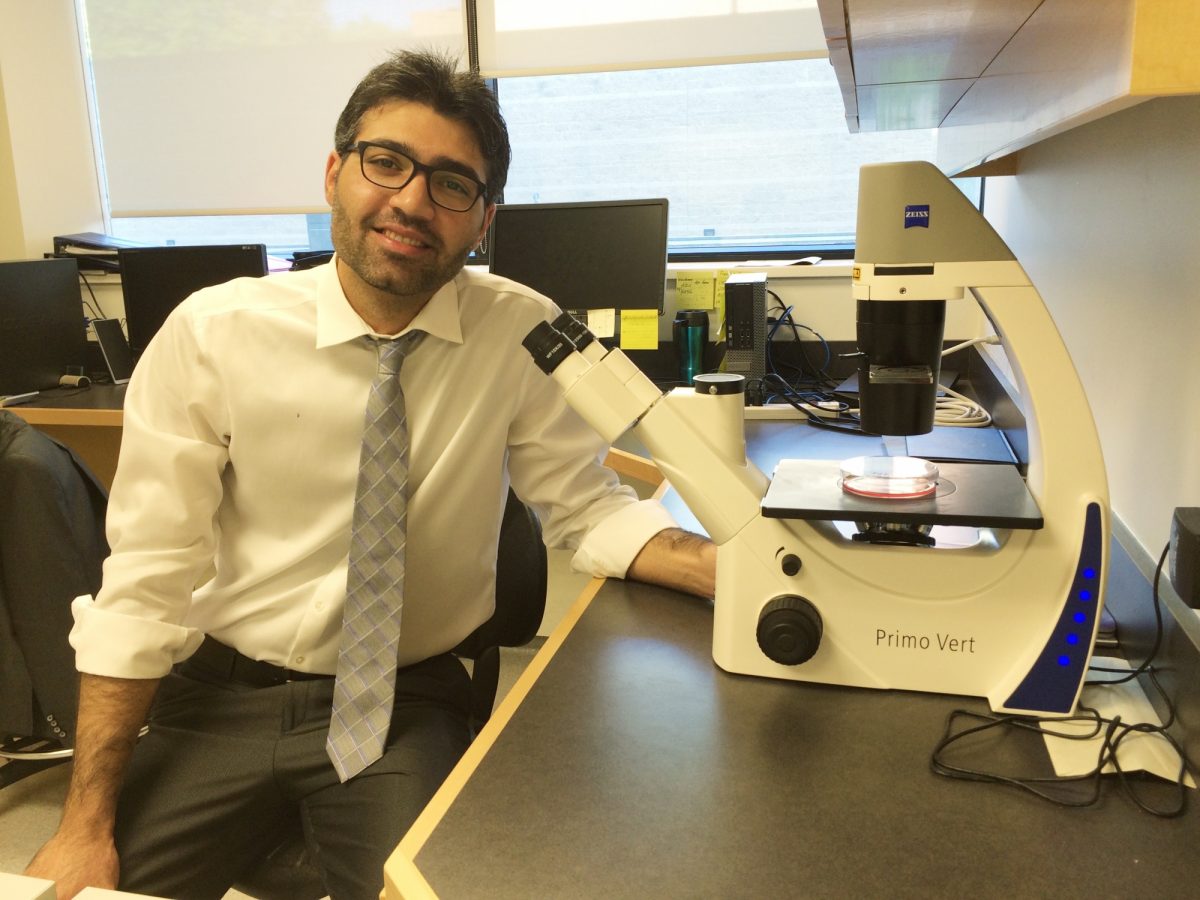
2020 Vanier Scholar, Javad Alizadeh
Meet Javad Alizadeh, one of five of UM’s 2020 Vanier Canada Graduate Scholarship recipients.
These awards, considered the Canadian equivalent of the United Kingdom’s Rhodes Scholarships, help recruit and keep in Canada top doctoral students from across the country and around the world. Each recipient will receive $150,000 over three years toward their research.
Alizadeh will be conducting his research in the Max Rady College of Medicine, Department of Human Anatomy and Cell Science, under the supervision of Dr. Saeid Ghavami. His award is funded by the Canadian Institutes of Health Research. UM Today caught up with Alizadeh to chat about how the Vanier Scholarship will support his research titled: The role of mitophagy and extracellular matrix (ECM) stiffness in the regulation of epithelial-to-mesenchymal transition (EMT) and subsequent metastasis in non-small cell lung cancer (NSCLC) model.
Tell us about your thesis and research topic.
I am investigating how a cellular pathway (known as mitophagy) can modulate the metastasis of cancer cells to other organs in patients with lung cancer. Cancer cells rely hugely on this cellular pathway, and since metastasis is the main reason for death among lung cancer patients, the findings from my project will hopefully shed some light on the mechanisms behind the metastasis of lung cancer. In particular, our findings will help us to look at the ways we can harness and manipulate this cellular pathway as a mechanism to prevent or slow down the metastasis of lung cancer to other organs. The findings from my project will hopefully contribute to the development of novel therapies which could significantly increase life expectancy for lung cancer patients.
What got you interested in your topic in the first place?
In high school I was really fascinated by cellular biology, and during my BSc and MSc studies back home in Iran, I found myself exploring various areas of biomedical research. If I were to identify the singular reason for my devotion and commitment to fight cancer through research, it would be losing my father to cancer at a very young age. Watching him die so young and watching the cancer change him in so many ways was devastating, but out of that tragedy I found the why power behind my research in advancements in cancer therapies.
What impact do you hope your research has?
I truly hope my research can better the lives of lung cancer patients in Canada and around the world. More directly, I hope my research ends up saving lives, or at least contributing to research that saves lives. Although it might seem we have a long road ahead to beat this ugly disease, I’m optimistic that together with the help of my colleagues in different sectors of health care we can become better prepared in the fight against cancer.
How has writing the thesis been going (if you’re at that stage of your research)?
I’m in the second year of my PhD and am busy primarily with classes and lab experiments relevant to my thesis: I haven’t actively started writing my thesis quite yet, but it is on the horizon. Hopefully the experiments I am conducting now yield interesting results, which will provide rich writing material!
How long have you been at UM?
I arrived in Winnipeg in 2015 to begin my MSc program at UM. It seems a lifetime ago now! In the last few years, Winnipeg has increasingly felt more and more like home. I’m very grateful for the opportunities given to me, as they have completely shaped my career.
What does it mean to you to receive a Vanier scholarship?
Firstly, I feel humbled and deeply honored. I realize that being awarded this scholarship demands a certain level of excellency, so I am proud and excited to be considered a scholar of this caliber. Being an international student who has had to overcome a lot to be where they are, and who is older than most of their peers, can sometimes be difficult. My recognition as a Vanier scholar has given me a much-needed feeling of validation of my life’s path, and it’s been reassuring to experience first-hand how much the Canadian research community believes in its international students and wants to help them succeed.
What do you do with your time outside of your PhD work?
In my leisure time I enjoy listening to music and watching different documentaries. I also occasionally play soccer or basketball with friends, go to cultural events in town and at the Canadian Museum for Human Rights with my partner, hit the gym, or simply go out to get some fresh air and take a nice walk.
Where do you see yourself in five to 10 years from now?
I plan to have graduated, finished my postdoc position at a research centre in Canada and be working as an independent researcher. Wherever I end up, I hope I can come back to Winnipeg, my first home in Canada, to help improve the health and wellbeing of Canadian cancer patients. Canada opened her doors to me, so I want to spend my working years here to repay the opportunities given me. Fingers crossed till then!
Research at the University of Manitoba is partially supported by funding from the Government of Canada Research Support Fund.






